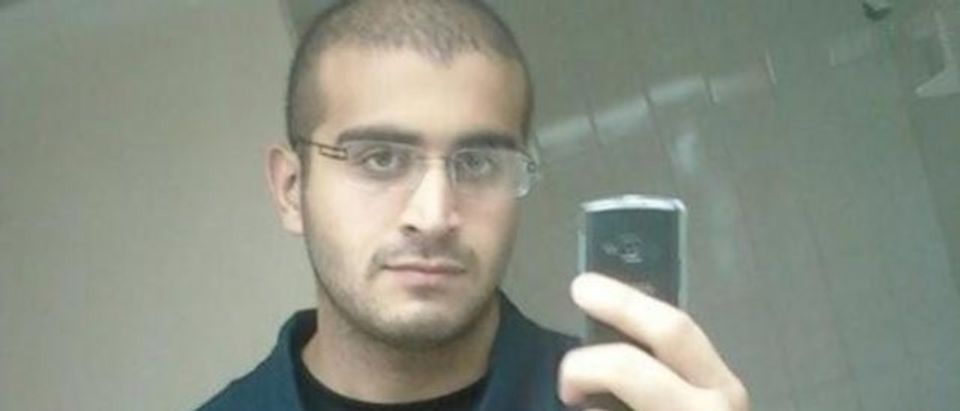[This is the first of a series of essays that will appear in my columns over the next several weeks exploring the strategic implications of the attack in Orlando.]
Yesterday came testimony from multiple witnesses, including his ex-wife, suggesting that the man who massacred 49 people at a homosexual bar in Orlando may have been a homosexual himself. In fact, judging by the media reports, the publicly available data that he was a homosexual is more extensive and goes back further in time than the data (e.g., his own statement, the character of the Mosque he attended, his passing acquaintance with someone also tied to the shooting in San Bernardino) suggesting that he was a violence prone Muslim fanatic. Does this make any difference? Well, it certainly raises the possibility of alternative motives for the outrage he committed.
For example: His father vividly recalls Mateen’s anger at the sight of males kissing. Mateen’s father interpreted this as a symptom of his deep animus against homosexuals. But, as one of the witnesses at the bar noted, during Mateen’s regular visits to the bar where the attack occurred, he would have seen far more explicit displays of homosexual affection. Yet witnesses recall that he was joking, laughing and at ease with the bar’s homosexual patrons and staff.
Other witness testimony and circumstantial evidence (logs on his cell phone, for example, indicating that he visited homosexual dating sites on the web) suggest that Mateen sought out and engaged in homosexual encounters. Though yesterday I have seen no direct testimony (e.g., from someone with whom he had such an encounter) of such practices, if we take that possibility into account, another interpretation of his father’s observation has to be considered. What if Mateen knew one or both of the men involved in the public display of homosexual affection? What if he had been involved with one or both of them in some way? His anger may have been rooted in jealousy, or a sense of betrayal connected with one or both of the men he saw.
The fact that Mateen’s father adamantly denies that Mateen was a homosexual suggests that he was a) unaware of that fact or b) Feels so dishonored and shamed by it that he would rather see Mateen stigmatized as a fanatical ISIS jihadist. If Mateen did in fact successfully hide his homosexual activities from his father, his actions suggest that a) he was himself ashamed of his behavior; or b) he wanted to spare his father’s feelings, or spare himself the possibly violent consequences of his father’s outrage against his homosexual conduct.
If, for whatever reason, Mateen was deeply self-conflicted about his homosexual behavior, the anger and depression arising from a passionate relationship gone bad has to be considered as a possible explanation for the outrage he committed. A self-conflicted individual may not only seek to strike a blow against the individual or individuals whom he believes to have betrayed him; he may seek to punish himself as well. Some people break and tear into everything that reminds them of the vital meaning a relationship had for their lives. If Mateen was in the midst of a psychotic break, the homosexual bar and its patrons would be such reminders.
But, in his self-conflicted state, the chosen target could appear to be a target of opportunity. If he was still deeply affected by his Muslim upbringing, attacking the bar and its homosexual patrons might seem to offer a way to redeem a semblance of his self-respect as a Muslim, while masking his betrayal of Islam. It might appear to be a way to preserve himself in his father’s esteem, and avoid lasting shame and dishonor for his family. Though it may seem strange to people who do not share the Islamic jihadi perspective, it is well known that there are circumstances where killing is considered an honorable submission to Allah’s justice.
Thus Mateen’s claim to act in light of the violent jihadist ideology ISIS preaches and acts upon could be part of a personal strategy for avenging his personal hurts and, however insanely, restoring the integrity of his Muslim identity before Allah, his father and his family as a whole. This strategy might include making efforts, preceding the attack, to lend plausibility to the claim
At this stage I cannot say whether any of this thinking will make good sense or no sense as more facts come to light. Establishing the time line of his reported behaviors will be critical. But investigation, like scientific research, depends on developing hypotheses that might explain the facts in hand, and then testing them against the fruits of further rigorous investigation. As the great fictional detective famously said, we must eliminate the impossible. Then the truth of what’s left, however improbable, offer the path of action that may verify it.
But here’s the challenge we Americans now face as a people: What is the likelihood that further rigorous investigation will be unperturbed by the political agendas of all the parties involved in the elitist faction’s political sham? As a people we have the greatest possible stake in acting, as Abraham Lincoln long ago advised, in the light of cold, calculating reason. But in human affairs calculation depends on the purpose being served. What is calculated to win elections, consolidate the control of an elitist few and convey the American people into pliable submission, may be directly opposed to what actually serves our national security, our safety, our unalienable right of liberty, and the happiness to be derived when it is employed in a way that merits God’s blessings.
I will ponder this further in my WND column this week.


